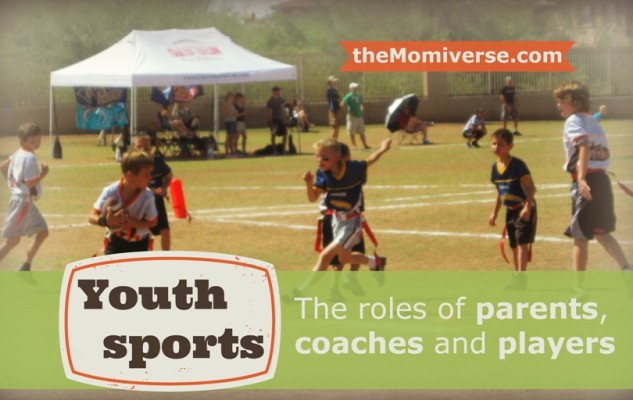
A team and its success is much like a three legged stool composed of parents, coaches, and players. If one leg is broken, the stool falls over.
Every parent wants their player to come out of a youth sports experience feeling like a winner with a confident self awareness and healthy attitude about sports. But how do you define winning and losing to your player? In our league’s coach certification class, we speak about the dangers of emotional abuse to children. Everyone understands physical and verbal abuse, but few parents realize the emotional abuse that can happen to children. Are you setting expectations that create undue pressure to perform? Unfortunately, many parents define being a winner by the outcome of their youth sports games. A win/loss record is a poor measure of a player’s success. It creates undue stress and expectations of both the players and the coaches. Remember, the opposing team doesn’t define whether your player is a winner or loser. Kids will remember how the coaches and parents made them feel after a game, and kids who continually work hard to perform at their potential will find the rewards of winning. Whose goal is winning anyway – yours or your player’s?
Be a winning parent and set your kids up for success
Encourage your child to compete against himself, to continually improve. The main focus of youth sports should be skill development and refinement. When a child performs to their potential and loses, the game outcome is not a fair measure of success. The parent needs to be supportive. Do not continuously coach the child. Would you like to continuously hear from your boss how you are messing up at work?
Guilt and threat is not a motivational tool and have psychological repercussions. Challenge your player one step at a time and tell him you believe he can do it.
Help your child learn to distinguish between success or failure vs. winning or losing. Youth sports are a microcosm of life. Kids can’t expect to win. They have to work hard to earn it, and even then, there are no guarantees. All we can do is prepare and perform to the best of our abilities to achieve what we want in sports, or in life. If you define success in terms of winning and losing, you’re setting your child up for failure. If you truly want your child to succeed in life, give them the gift of failure and the tools to deal with it positively. If you teach your child how to view set-backs, mistakes, and risk taking, you’ll be giving them the keys to a lifetime of success.
A winning coach improves individual players
As a long time coach, I can tell you that no one takes more ownership and responsibility for a team’s record than the coach. It weighs heavy on our hearts and minds if we can’t deliver a win for our kids. If you’re a good youth sports coach, you’re in a constant struggle every game to balance participation with winning and encouragement with discipline, all the while knowing that you can’t coddle these kids or you set them up for failure. We rely heavily on the parents to be a foundation of positive encouragement so that we can do our jobs and still keep the kids motivated and excited. Coaches need parents who don’t coddle or coach!
Playing sports is a rite of passage where children become young adults, and yes, it involves winning and losing. Youth sports coaches should never measure their success or ability on a win/loss record. If you’re a coach that has the patience and organization to teach discipline, fundamentals, focus and hard work to improve individual players, you’re a good coach. Damn the standings. And for every parent that isn’t happy with the game outcome, I’ll show you ten more who want to be on your team because of your coaching style.
Of course players want to win, but they also want a good experience. Players will need more encouragement and attention after a lost game. Ice-cream helps. They need more discipline after a win. At the end of the day, a player wants to know that you still approve and have faith in them. A game lost is forgotten, but feeling hurt is remembered. Love unconditionally and promote self esteem.
A player’s real score
I have three team rules for every team I coach. The rules are simple and I encourage every coach to adopt them:
- No talking when coach is talking
- Focus and play hard
- Have fun
Players will reach their potential if they follow these three rules. Parents can help their kids reach that potential by participating with them. Every coach knows which kids are practicing at home and which aren’t. It’s evident in their progress.
Parents, coaches, and players need to support each other. Winning and losing should be diminished as a simple game outcome because it isn’t the pinnacle of the youth sports experience. Teach the kids the game, and prepare them for the next level of sports. In doing so, you’ll prepare them for the next level in life. Focus on the process, not the outcome.
What else would you add about the role of parents, coaches and players?






{ 4 trackbacks }